New Hope for the Climate Crusade
A promising new legal framework that recognizes Earth's ecologies as a public trust could compel local and state legislators to take action to protect the planet by convincing courts that environmental protection is the responsibility of the government.A promising new legal framework called atmospheric trust litigation could compel local and state legislators to take action to protect the Earth by convincing courts that ecological protection is the responsibility of the government, held in its trust to ensure the survival of all generations to come.
In the final episode Thursday of Bill Moyers’ long-running interview show, legal scholar Mary Christina Wood, author of the book “Nature’s Trust,” traced use of the public trust doctrine through American history and all the way back to Rome.
“The heart of the approach,” Wood explained, is “that government is a trustee of the resources that support our public welfare and survival. And so a trust means that one entity or person manages a certain wealth, an endowment, so to speak, for the benefit of others. And in the case of the public trust, the beneficiaries are the present and future generations of citizens. So it is a statement of, in essence, public property rights that have been known since Roman times.
“In fact, this was articulated by the chief justice of the Pennsylvania Supreme Court in a landmark public trust decision last year. And the decision basically overturned a statute that the Pennsylvania Legislature had passed to promote fracking. And the chief justice of the Pennsylvania Supreme Court, Chief Justice Castille, said this violates the public trust. And he began his opinion by saying that citizens hold inalienable environmental rights to assure the habitability of their communities.
“And that these are ensconced in the social contract that citizens make with government. They cannot be alienated. They are inherent and reserved. So they are of a constitutional nature. And the point of the public trust is that the citizens hold these constitutional rights in an enduring natural endowment that is supposed to support all future generations of citizens in this country. It is so basic to democracy; in fact, the late Joseph Sax said the trust distinguishes a society of citizens from serfs.”
Moyers pointed out that what Wood describes “will strike some people as socialist.” To the contrary, she said, the practice “inures in democracy. Now, if they believe that is socialism, then we have quite a conversation ahead, because this has been a part of our legal system since the very earliest years of our country. The Supreme Court of the United States in a landmark case called Illinois Central Railroad in 1892 said that the Illinois Legislature couldn’t just give away the shoreline of Chicago, the shoreline along Lake Michigan, to a private railroad company, because the citizens needed that shoreline for fishing and navigation and commerce. This is really nothing new. It’s certainly not socialism. It is the heart of popular sovereignty to expect that the citizens have enduring rights to the resources that support their very survival.”
Attentive to the practical obstacles in Wood’s ways, Moyers asked her how she expects to overcome the political reality of “a Congress controlled by a party, the Republican Party, that boasts of denying climate change brought on by human behavior. Do you expect anything positive coming out of the political process to reinforce your efforts over the next few years?” To which Wood responded, “I absolutely do. But not at the federal congressional level. I do at the local level. And so the federal Congress has essentially been purchased through millions and millions of dollars of campaign contributions. The whole purpose of the public trust is to prevent one branch of government from precisely that type of corruption.
“It holds that these legislators are trustees with constitutional obligations to the citizens,” Wood continued. “So just to put it out there, the public trust is designed for precisely the situation we have today. Now, whether or not I expect political reinforcement, I would say absolutely at the local level. These cases are finding reinforcement at the local level. In fact, in Eugene, Oregon, Our Children’s Trust organized a group of youth and they went before city council, month after month after month, and testified, asking the city council to really take action on climate and to make Eugene, Oregon, a carbon-neutral place.
“And after month after month after month, when the city councilors looked those children in the eyes and saw what I describe as just the moral authority of these youth, they passed the most aggressive climate ordinance in the country. And I think that is the power of the youth. The youth have to now step up, come before their legislators, pack the courtrooms in these atmospheric trust cases, meet with the agency people.
“The youth have to come forward because they have no money,” Wood noted. “They have no voting rights. But they have got something that no one else has, and that is the moral authority. That is the future. And the obligations we naturally feel towards our own children, towards children we love, they all come to the surface when we can– when we actually speak to youth about the future they face.”
And to the question of whether state and local judges would respond to the kind of public pressure she envisions: “The court is just one– it’s an important branch of government; it’s the third branch of government. It’s crucial to our checks and balances. And so of course you would think that the courts have a role to play.
“But street democracy is so powerful,” Wood asserted. “I don’t know of any major movement that has succeeded without street democracy. When hundreds of thousands of people take to the streets, as they did in New York City, exercise their constitutional rights of free assembly; and then when you see, also, almost 100,000 people signing up and pledging to risk arrest if Keystone, the Keystone Pipeline, that would transport tar sands from Canada, those people are pledging to risk arrest if Obama or Congress approves the Keystone Pipeline.
“When you see this kind of uprising, that only reinforces the more formal legal approaches that are put forth in the atmospheric trust litigation,” Wood explained. “The two go very much hand in hand because what is very important for judges is to sense the moral authority of the people. Judges have a finger on the pulse of the American people in a way that I think we don’t really understand that well. Judges can, if they sense the need, move very rapidly and order swift injunctions to force the legislatures or agencies, or both, to create a carbon reduction plan. And as that awareness becomes more acute, as demonstrated in the streets, courts, I believe, will become more receptive to coming in and ordering the legislatures to do their job.”
— Posted by Alexander Reed Kelly.
Your support matters…Independent journalism is under threat and overshadowed by heavily funded mainstream media.
You can help level the playing field. Become a member.
Your tax-deductible contribution keeps us digging beneath the headlines to give you thought-provoking, investigative reporting and analysis that unearths what's really happening- without compromise.
Give today to support our courageous, independent journalists.
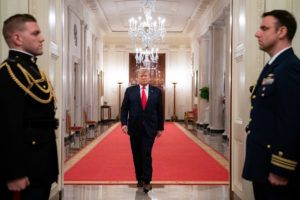
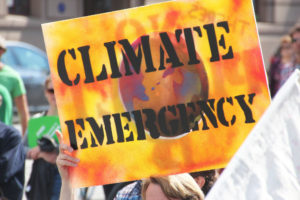
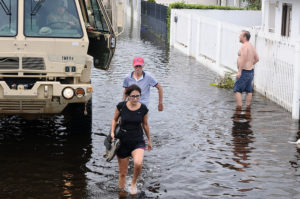

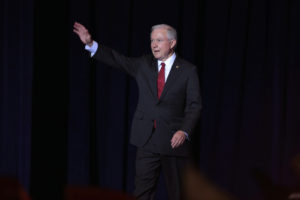
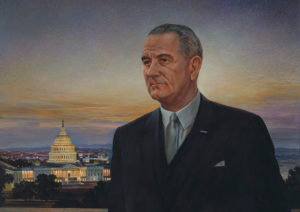


You need to be a supporter to comment.
There are currently no responses to this article.
Be the first to respond.